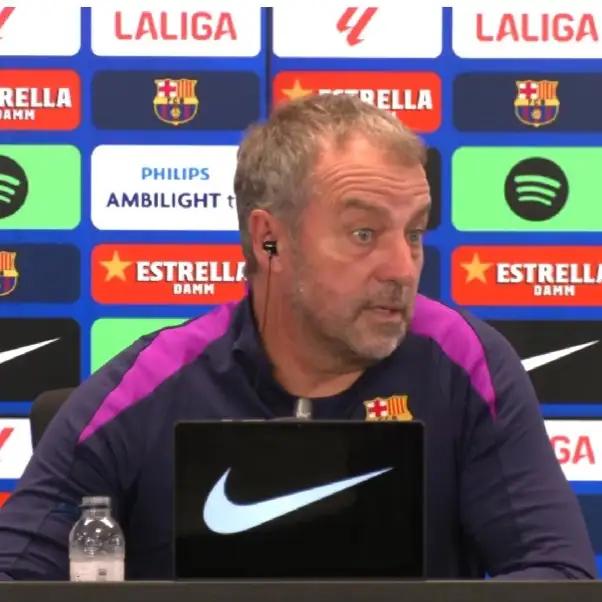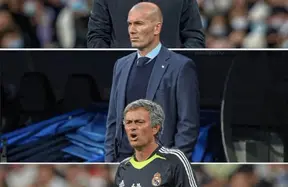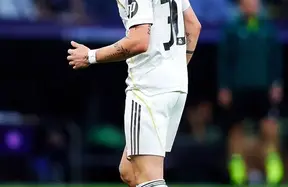Barcelona head coach Hansi Flick downplayed debate around next year’s revamped international break format, saying he has no firm opinion while acknowledging it could benefit national federations by keeping players for longer stretches. His stance lands amid ongoing discussion about fewer but longer international windows designed to reduce travel while maintaining match commitments. Fans split between concerns over fixture congestion and the practical benefits of consolidated scheduling. For Barcelona, the key questions will be workload management, injury prevention, and how elongated blocks impact rhythm during a crowded domestic and European campaign.

In a recent media availability, Hansi Flick was asked about the new international break format expected to begin next year. He responded without taking a strong position, remarking that extended time with national teams might help federations, but he withheld a definitive judgment on whether the changes are good or bad. The remarks come as global and European football bodies continue refining the international match calendar to balance national-team and club interests.
Hansi Flick: "The new international break format from next year? I don't have an opinion on that. They decide regardless of what we think. I don't know if it's good or not. It might be good for the federations to have the players for a longer time, but I have no opinion on it."
@BarcaUniversal
Impact Analysis
The potential shift toward fewer but longer international windows would reverberate across club operations, and Barcelona are no exception. Longer continuous periods with national teams could streamline travel and reduce repeated disruptions to training rhythms during the fall. However, they also concentrate risk: if players log heavy minutes in a compressed block, the cumulative load may spike, amplifying fatigue and soft-tissue injury risk upon return. Sports science departments would be forced to recalibrate rest ratios, reconditioning plans, and return-to-play protocols—especially for long-haul internationals from South America and Africa.
From a tactical perspective, clubs lose intermittent touchpoints that help recalibrate systems between windows. Barcelona’s staff may need to integrate more modular training, ensuring players can plug back into game plans after extended national duty with minimal friction. Fixture sequencing in La Liga and European competition will matter: a tough run immediately after an elongated break could penalize squads with many internationals. On the positive side, consolidated breaks could grant coaches longer uninterrupted stretches with full squads between windows, allowing for deeper tactical work and recovery cycles. Ultimately, the impact will hinge on exact window lengths, match densities within those windows, and the travel footprints of Barcelona’s core internationals.
Reaction
Fan sentiment is mixed and, at times, sardonic. A cluster of supporters interprets Flick’s non-committal response as deliberate diplomacy—acknowledging both the potential benefits for federations and the undeniable downside for clubs that see their best players log heavy minutes away from the training ground. Some observers frame the comment as a subtle warning about player load, while others tease that it’s a classic avoidance tactic from a top coach who refuses to stir controversy without concrete details.
There’s also confusion about the precise mechanics of the new format, underscoring a communication gap between governing bodies and the broader audience. Many fans argue that football already suffers from too many matches and fret that “longer access” could simply translate to intensified workloads rather than a smarter distribution of fixtures. A minority applauds the theory of fewer travel disruptions and more coherent national-team camps, hoping it improves international quality. The tone overall: skeptical curiosity, with light jabs at Flick’s restraint and a chorus of concerns about congestion, recovery time, and what it all means for club momentum.
Social reactions
Guess he's a professional shrugger.
BLOCKXS.COM (@blockxs)
what is the new international break next year
Sweep (@0xSweep)
At least he acknowledges both sides: good for federations, but maybe not for clubs.
Sports Analyst (@SportsAnalyst43)
Prediction
If the shift solidifies into fewer but longer international windows, expect clubs like Barcelona to overhaul microcycles. Scenario one: extended October and March blocks become “mini-tournaments,” prompting federations to stack competitive fixtures while clubs plan pre- and post-window deloads, individualized GPS-driven conditioning, and staggered reintegration. Injury-prevention emphasis will heighten, with rotation ramped up in the first two matches after players return.
Scenario two: governing bodies strike a balance—slightly longer windows but firm caps on match density—giving national teams cohesion without spiking fatigue. Barcelona could leverage the uninterrupted stretches between windows to refine tactical automatisms, accelerate youth integration, and pursue data-led recovery protocols. Scenario three: pushback from elite clubs and player unions forces adjustments mid-cycle, potentially redistributing fixtures or creating protective clauses for long-haul travel athletes. In all scenarios, communication between club med-staff and federations becomes the decisive variable; teams that coordinate best will minimize performance dips and availability issues.
Latest today
- Manchester United eye Manu Koné for summer 2026 - a made-to-measure fit for Amorim's midfi...
- Ruben Amorim aligns with Jason Wilcox as Man United sharpen January transfer plan
- Ruben Amorim on 3-4-3: identity first - what it means for Manchester United and player rol...
- Amorim flags United injury crisis - Bruno, Mainoo, De Ligt, Maguire and Mount doubtful
Conclusion
Hansi Flick’s measured stance is pragmatic: with details still evolving, sweeping judgments risk missing the mark. What’s clear is that any calendar redesign must be judged by player welfare outcomes and competitive balance, not just administrative convenience. Consolidated windows could reduce travel churn and enhance national-team cohesion, but they also threaten to concentrate fatigue and complicate post-break form for clubs stacked with internationals.
For Barcelona, the smart play is preparation over protest. That means robust load monitoring before, during, and after windows; scenario planning for late-returning stars; and building tactical elasticity so the team can re-sync quickly. As governing bodies finalize specifics, the club’s edge will come from execution—turning a potentially chaotic shift into a marginal gain. Flick’s neutrality reads less like indifference and more like readiness to adapt once the rules are official.













𝕡𝕒𝕡 𝕃𝕨𝕜𝕖𝕪🦉
what’s the format?
BLOCKXS.COM
Guess he's a professional shrugger.
Sweep
what is the new international break next year
Sports Analyst
At least he acknowledges both sides: good for federations, but maybe not for clubs.
Akhand Bharat Sena
There are too many games
Sports Analyst
Feels like he’s being diplomatic while hinting at concerns.